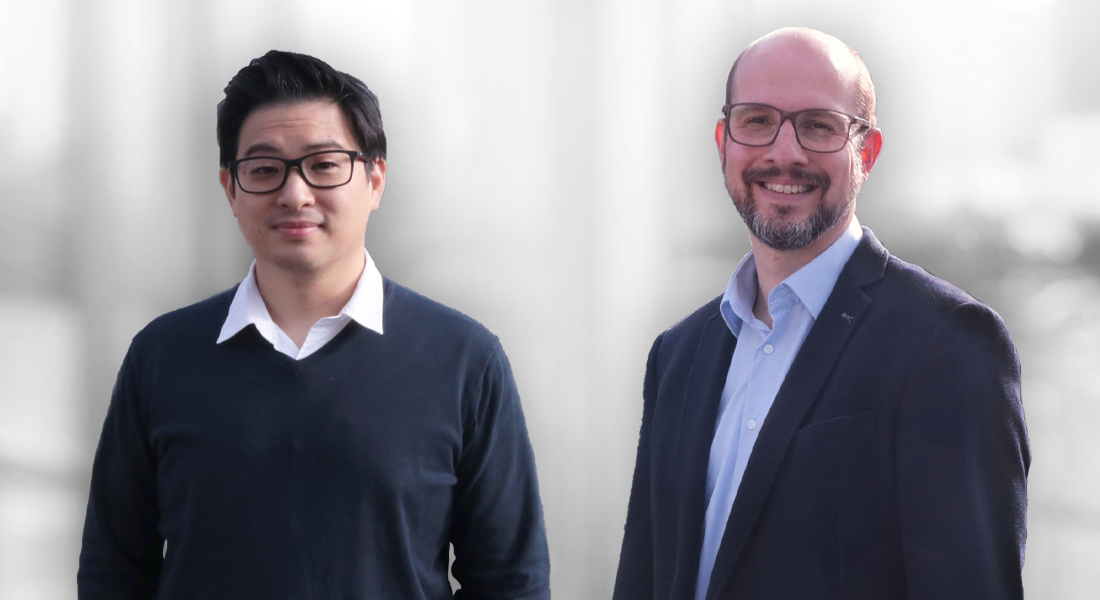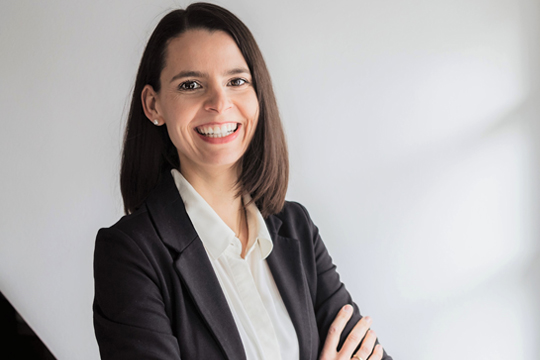Deutsche Leasing, a leasing service provider, launched its own digitalization subsidiary called vent.io at the beginning of 2021 — in the middle of the coronavirus pandemic! In our series “Working in the New Reality,” Daniela Drube and Verena Vinke spoke with venti.io’s two managing directors Ajat Hong and Sven Siering about the challenges of founding a company in a time full of uncertainty — and the exciting opportunity to build a company that has never heard of the “old normal.”
vent.io is the “digitalization subsidiary” of Deutsche Leasing and was founded at the beginning of this year. What is your mission — and what makes you special?
Sven Siering: At vent.io, we develop new digital business models for the customers and partners of Deutsche Leasing Group — namely, by cooperating with and participating in early-stage B2B start-ups that focus on asset-related services. We are also developing new digital customer and partner interfaces and working on the implementation of data science use cases that are of interest to Deutsche Leasing Group and its customers and partners.
In short, vent.io is investing in B2B start-ups and itself working on new digital business models related to Industry 4.0.
The close relationship to our parent company allows us to offer to start-ups investment capital as well as access to an extensive customer and partner network that includes experts in all aspects of financing, leasing, and risk management, making us unique in the German venture capital landscape.
Ajat Hong: Unlike most VCs, vent.io has its own software and system engineers, its own data scientists, and its own modern and secure cloud infrastructure, enabling our in-house development and support of start-ups that are conducting projects in these areas as well.
Your spin-off became effective on 27 January 2021, in the middle of the coronavirus lockdown.
“Starting up a new company during COVID-19” — what did that mean for you?
Sven Siering: The procedure was definitely a bit less bureaucratic and rather unusual in comparison with the situation familiar to most company founders prior to coronavirus. Our only in-person appointment was the signing of the memorandum of association at the civil-law notary public’s office in Bad Homburg. Every single contact with government authorities was by email and telephone, although the level of digitalization varied quite a bit from one authority to another. In some cases, we still had to send printed forms by mail — but most of the work was done online, which made it less problematic than it probably was before the pandemic. Our registration in the Commercial Register was effected on a Saturday although, as is well known, German officials work only from Monday to Friday. During the pandemic, however, many employees were working from home, so the employee who handled our registration just registered us on a Saturday. We had to wait a little longer than usual for our tax number, however.
As you are a new company, hiring employees and developing your own company culture is at the top of your to-do list. What approach have you taken, and what challenges do you see here?
Ajat Hong: In establishing vent.io, we have created a digital brand designed to attract talented people from the fields of innovation, venture capital, software engineering, and data science. Obviously, we are aware that a brand name alone does not make a company — the employees are the focal point; they are the heart and soul of vent.io. In the last few months, we have begun to develop our own corporate culture in collaboration with the team and Detecon. The first step was to flesh out our “Purpose” in more detail and to define the values we want to live by as well as the rules for working together.
Sven Siering: Detecon also supported us in the creation of the personnel appraisal process and the compensation structure and helped us with job assessment and the introduction of the OKR systematics. The cooperation has been fantastic.
How did you deal with the fact that the first phase of the company founding, which was challenging enough in itself, coincided with a period of strictly virtual collaboration? And looking ahead to the future, what hybrid work models have you considered, and why?
Sven Siering: Essentially, this was not new territory for us as we had already established mobile working methods in the Digital Innovation Unit of Deutsche Leasing — the predecessor organization that spawned vent.io. Working exclusively from home, however, was indeed new. We invested a lot of time in meeting virtually on a regular basis — for technical discussions, of course, but for virtual lunches or coffee breaks as well. This gave all employees the time and opportunity to get to know one another better, just as would likely have happened in the break room and kitchen before the pandemic. Virtual coffee dates still take place even now in our hybrid model.
The collaboration has been fabulous at all times; the colleagues have proved to be skilled in organizing themselves. Naturally, everyone was keen for the first in-person team event to take place — and we were all absolutely delighted to see one another finally “in the flesh” instead of just on the laptop screens.
Learning about the different preferences among the team members has been an interesting process: some prefer to work in the office, others value the opportunity to work from home. We have now all agreed to work in the office at least three days a week, and everyone will be there on Wednesdays when we have our team day and our breakfast together. This will help us to grow together as a team and, of course, to get to know our new colleagues; we are already looking forward to meeting them!
vent.io is constantly moving and changing — there is never a dull moment!
Ajat, Sven, thank you very much for this insightful interview.
Many thanks to Verena Vinke for her contribution to this interview.







